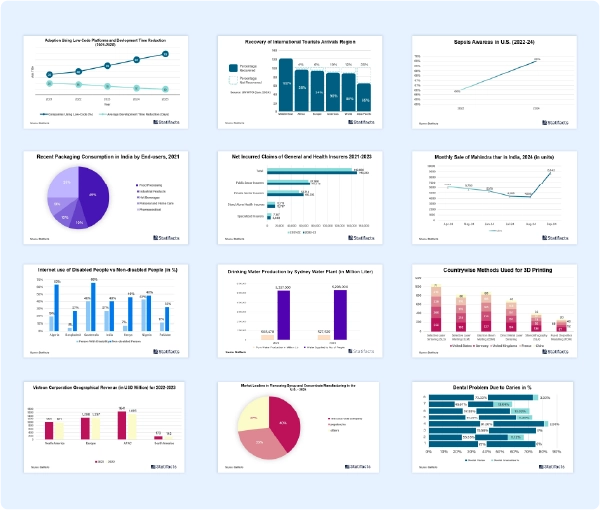The U.S. cancer immunotherapy drug discovery outsourcing market size accounted for USD 400.10 million in 2024 and is expected to exceed around USD 1,037.76 million by 2034, growing at a CAGR of 10% from 2025 to 2034.
U.S. Cancer Immunotherapy Drug Discovery Outsourcing Market Report Highlights
- By service, the target identification and validation segment dominated the U.S. cancer immunotherapy drug discovery outsourcing market with the highest revenue share in 2024.
- By service, the lead screening and characterization segment is anticipated to be the fastest growing during the forecast period.
- By cancer type, the lung segment accounted for the largest revenue share for the U.S. cancer immunotherapy drug discovery outsourcing market in 2024.
- By cancer type, the prostate cancer type segment is expected to be the fastest-growing during the forecast period.
- By drug, the monoclonal antibodies segment accounted for the highest revenue share in 2024 for the U.S. cancer immunotherapy drug discovery outsourcing market.
- By drug, the cancer vaccines and oncolytic vital therapy segment is expected to be the fastest growing during the forecast period.
The U.S. cancer immunotherapy drug discovery outsourcing market refers to the production, distribution, and application of cancer immunotherapy drug discovery outsourcing, which is a specialized service model within the biotechnology and pharmaceutical industry. It involves the outsourcing of many aspects of the drug discovery and development process for cancer immunotherapies to contract development and manufacturing organizations (CDMOs) and contract research organizations (CROs).
Cancer immunotherapy drugs are designed to alert the immune system about these mutated cells so it can locate and destroy them. Immunotherapy drugs are designed to boost cancer-fighting powers of immune cells to give the immune system the upper hand. Immunotherapy is a type of cancer treatment that helps your immune system fight cancer. The immune system helps your body to fight infectious and other diseases. It is made up of white blood cells and organs and tissues of the lymph system. The outsourcing model accelerates timelines, reduces operational costs, and allows companies to focus their resources on clinical development and commercialization.
Increasing investment by the pharmaceutical and biotechnology industries is driving the growth of the U.S. cancer immunotherapy drug discovery outsourcing market. The rising investment in the research and development by key players in cancer immunotherapy drug discovery and development is one of the strategic initiatives adopted. It can lead to more effective treatments, which can reduce suffering and save lives for cancer survivors, patients, caregivers, researchers, or anyone who is affected by cancer, investment in cancer research will pay off in lives saved. Increasing investment helps people find community and connection, build wellness and resilience, and manage life with and beyond cancer.
Cancer R&D contributes to the economy by supporting jobs within cancer research and creating demand across the wider life sciences and research supply chain. Additionally, there are other economic impacts derived from advancements in cancer care that improve outcomes and allow patients to keep working for longer. Cancer immunotherapy offers the possibility for long-term control of cancer. Immunotherapy can train the immune system to remember cancer cells. This immune memory can result in longer-lasting and potentially permanent protection against cancer recurrence.
Advanced technologies in cancer immunotherapy are driving the growth of the U.S. cancer immunotherapy drug discovery outsourcing market. Advanced biomaterials and drug delivery systems, such as nanoparticles and the use of T cells to deliver therapies, can effectively use immunotherapies. Recent advancements in cancer immunotherapy, including immune checkpoint inhibitors (ICIs) and chimeric antigen receptor (CAR) T-cell therapy, have significantly enhanced the clinical management of many cancers.
Technological innovations in immunology devices include nano well assays, droplet microfluidic devices, and cell-trapping microfluidic devices that act as a platform for studying single immune cells to advance the understanding of immunology. Many therapeutic applications and agents are currently developed to manipulate many aspects of the immune system. Inhibitors of immune checkpoints, cytokine therapies, monoclonal antibodies, adoptive cell therapies, cancer vaccines, and oncolytic viruses have all proven successful in clinical trials.
Integration of artificial intelligence driving the growth of the U.S. cancer immunotherapy drug discovery outsourcing market. Scientists developed an AI-based tool that uses routine clinical data to identify cancer patients most likely to respond to immunotherapy drugs called checkpoint inhibitors. This approach can help guide personalized cancer treatments for patients. Artificial intelligence (AI) can help predict the draggability of anticancer drug targets. AI can help speed up drug discovery, reduce costs, and enhance accuracy. AI can also help with patient drug safety, stratification, and supply chain management. AI can bring together the 3D geometry and atomic structure of a potential drug-like molecule and build a picture of how it fits into its target protein.
Published by
Laxmi Narayan , March 2025

